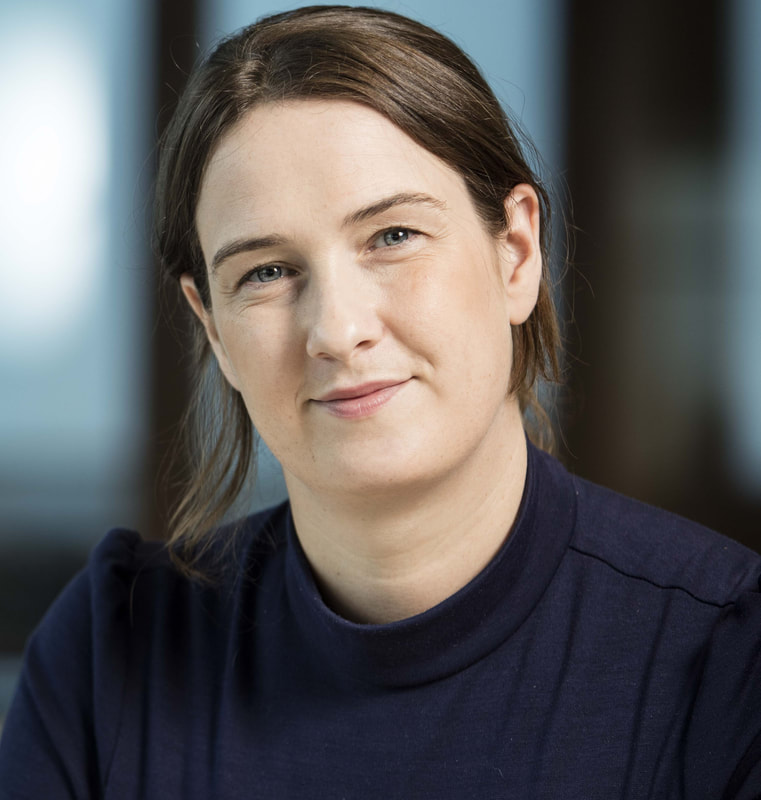ANZAED 2022 Sydney Conference: Plenaries
The 2022 Conference Committee is pleased to announce the following two outstanding plenary sessions:
The 2022 Conference Committee is pleased to announce the following two outstanding plenary sessions:
Plenary Session: Autism and Eating Disorders: Broadening Our Understanding
Presenters: Will Mandy, Meagan McGregor, Jac den Houting & Annie Crowe
Chair: Colleen Alford
Presenters: Will Mandy, Meagan McGregor, Jac den Houting & Annie Crowe
Chair: Colleen Alford
|
Understanding the overlap between autism and eating disorders: some new findings and clinical recommendations - Will Mandy
Around a fifth of women with anorexia nervosa have an underlying autism spectrum condition. Usually their autism is undiagnosed, and has a significant impact on their eating difficulties and capacity to benefit from available eating disorder treatments. Autistic women with anorexia nervosa have some of the worst outcomes for their eating difficulties, and benefit the least from current treatment protocols. This session aims to help professionals improve their ability to notice, understand and support autistic women who are experiencing severe restrictive eating problems, such as anorexia nervosa. In this talk I present new findings from the largest ever study of restrictive eating disorders of autistic women, which can provide insights into the causes, maintaining factors and treatments needs of autistic women with restrictive eating disorders. I will argue that: (1) the high rates of anorexia amongst autistic women often reflect the intolerable strain they are placed under by a society that is generally unaccommodating to autistic people, especially those who go undiagnosed; (2) that there are key autism-specific factors that cause and maintain restrictive eating problems of autistic women that are not reflected in current treatment models for anorexia. I will outline, based on our data, a model of restrictive eating disorders in autistic women; and make suggestions for service improvements. |
Will Mandy is a clinical psychologist and Professor of Neurodevelopmental Conditions at University College London (UCL), where he is joint director of the clinical psychology training course, the largest of its kind in Europe. His work aims to improve the recognition of autism, and to develop new interventions to help autistic people. He has a particular research interest in improving the identification and care of females on the autism spectrum, who are currently at high risk of going unnoticed and unhelped by clinical and educational services. He also studies sub-diagnostic autistic traits in non-clinical populations, and the role these can play in the development of a range of common childhood, adolescent and adult mental health problems. With colleagues at Great Ormond Street he has developed and trialled interventions to help children with autism transition from primary to secondary school, and to teach children about their autism diagnosis, with an emphasis on fostering their sense of self-worth and pride.
|
|
The Dilemmas of Diagnosis - Meagan McGregor
In her presentation Meagan will explore autism and the dilemmas of diagnosis when other factors such as an eating disorder might be present. As part of this she wishes to emphasise the importance of understanding the individual differences within the person that impact their function and participation. As well as this examine how certain vulnerabilities in our neurodiverse clients might make other co-morbidities including eating disorders manifest more rapidly than in other cases especially at certain phases of development. In this we will also explore how sensory and motor differences that might impact clinical outcomes. |
Meagan McGregor is the Co-Director of Zoom Therapy Services, Blue Mountains. She is a Paediatric Occupational therapist with over a decade of experience working with infant, child and adolescent clients with a range of different neurodevelopmental disorders including Autism, ADHD and learning disorders. Meagan focuses on incorporating trauma-informed care and interpersonal neurobiological/relationship-based approaches into practice. Meagan has received extensive training and experience in sensory integration approaches and has also undergone training in NDT and other movement facilitation and handling based techniques. Meagan is trained under the DIR/Floortime technique and has undertaken further training in Autism and child development. She utilises sound interventions in clinical practice including Therapeutic Listening, Tomatis, Forebrain and Porges’ Safe and Sound Protocol (SSP). She guides families on how to set up home sensory gyms and works within schools to help to implement trauma sensitive spaces and areas where children can have their sensory and motor needs met to support them to be able to feel safe and engage with the curriculum.
|
|
Rethinking autism: Shifting from ‘normal science’ to neurodiversity - Jac den Houting
Professional and public understanding of autism is in a state of flux. In recent decades, the rise of the neurodiversity movement has challenged traditional deficit-based medical conceptualisations of autism. For many autistic people, like Jac, the neurodiversity paradigm offers an affirming alternative lens for understanding their experiences. But, as “neurodiversity” becomes the new buzz word in diversity and inclusion, many remain unfamiliar with key tenets of this powerful social movement. In this talk, Jac will break down the buzz word and give new insights into neurodivergence, explaining how and why we need to rethink the way we think about autism. |
Dr Jac den Houting (they/them) is a research psychologist and autistic activist working in pursuit of social justice. Jac is committed to creating real-world change that benefits autistic people, in the areas that matter most to the autistic community. Jac believes that autism research can be most meaningful and impactful when it is conducted by and with the people it is intended to serve – autistic people. Jac trained as a psychologist in Brisbane, Australia, where they also completed their PhD through Griffith University’s Autism Centre of Excellence. Currently, Jac is a Postdoctoral Research Fellow at Macquarie University in Sydney, where they investigate structural and systemic inequities in autism research. Prior to their research career, Jac gained 10 years’ experience as a psychologist in the criminal justice system. Jac is a Deputy Editor for the journal Autism in Adulthood, a member of the Aspect Advisory Council, and was a founding member of the INSAR Autistic Researchers Committee.
|
|
Neurodiversity-affirming healthcare - Annie Crowe
Throughout Annie’s extensive neurodiversity advocacy work, she has met with many autistic people who have shared how traumatic it was for them to navigate through eating disorder recovery, in a system that did not adequately accommodate their neurodivergent identity. During her presentation, Annie will start by introducing the newly created not-for-profit Eating Disorders Neurodiversity Australia (EDNA). She will explain why EDNA was formed and introduce the goals of this innovative start-up social initiative. Research shows that autistic individuals are disproportionately affected by eating disorders and that they have some of the worse recovery outcomes. Annie will explain the need for neurodiversity-affirming care and why this is critical to improving outcomes for autistic individuals. She will highlight some common lived experience examples of where the neglect of neurodivergent identity has caused unintentional harm. Followed by advocating for a shift towards accepting neurodivergent traits, which will enhance a sense of self-worth and neurodivergent pride, all in order to adequately support eating disorder recovery for this marginalised population. |
Annie Crowe (she/her) is a proud autistic ADHD lawyer and the founding Director of Neurodivergent Millennial, a consulting business that is leading the way for Neurodiversity inclusion in the 21st Century. She is a strong proponent of the Neurodiversity Paradigm, which is based on the concept that neurodiversity is a natural and necessary form of diversity needed for society the thrive (just like biodiversity) and that the idea of a “normal” or “healthy” brain is actually a social construct. Annie is the founder and Board Chair of Eating Disorders Neurodiversity Australia (EDNA), a neurodivergent-led not-for-profit aimed at primarily supporting autistic Australians with eating disorders through the promotion of neurodiversity-affirming healthcare and disability support. She is an internationally recognised speaker on neurodiversity and disability inclusion. Annie has a background in human rights law and uses this combined with her lived experience to advocate for social justice and the inclusion of neurodivergent people in the Australian Health System. She works tirelessly to ensure neurodivergent voices are heard and that their lived experience is valued for the expertise that it is.
|
Plenary Session: Translating Eating Disorders Neuroscience Research: Lessons from Bench-to-Bedside Treatments
Presenters: Claire J Foldi, Morgan James, Robyn Brown & Milan Piya
Chair: Trevor Steward
Presenters: Claire J Foldi, Morgan James, Robyn Brown & Milan Piya
Chair: Trevor Steward
|
A Preclinical Investigation of Psilocybin as a Novel Therapeutic for Anorexia Nervosa - Claire J Foldi
Anorexia nervosa (AN) has one of the highest mortality rates of any psychiatric disorder and despite this, there is currently no effective medicinal treatment. Psilocybin is currently being explored as a novel therapeutic for AN, and is proposed to act by “breaking down” the cognitive inflexibility that characterizes AN symptoms. Using the most well-established animal model of AN, known as activity-based anorexia (ABA) and reinforcement learning paradigms, we have demonstrated that psilocybin causes a specific improvement in flexible learning and are now focused on determining the neurobiological mechanisms through which psilocybin might act to improve outcomes in patients with AN. |
Dr Claire Foldi completed a PhD in behavioural neuroscience at the Queensland Brain Institute in 2012 and undertook postdoctoral training in cellular neurobiology at the Karolinska Institutet in Stockholm, Sweden. In 2015, she joined the Department of Physiology at Monash University to develop a range of projects aimed at understanding the neurobiological contributions to anorexia nervosa using the activity-based anorexia rat model. Dr Foldi was appointed to a Group Leader position at the Monash Biomedicine Discovery Institute in 2019, where she now leads a program of research on feeding disorders that has attracted >$1.5M in research funding from the NHMRC.
|
|
Targeting the Orexin System to Reduce Food Craving - Morgan James
In this talk, I will present data showing that the brain’s orexin system is a promising target for new medications to reduce overeating. Drawing on studies utilizing animal (rat) models of binge eating, I will present data indicating that activity of orexin neurons underlies the loss of control over the consumption of palatable foods. I will also show data from pharmacological trials in our lab, which indicate that FDA-approved orexin receptor antagonists are highly effective at blocking craving and excessive motivation for palatable foods, and thus can be readily repurposed for the management of eating disorders characterized by excessive food intake. |
Dr. Morgan James is an Assistant Professor of Psychiatry at the Robert Wood Johnson Medical School at Rutgers University. He leads a translational neuroscience lab that is focused on characterizing brain systems that underlie aberrant motivation in substance use and eating disorders. He examines these research questions from both a mechanistic and drug-development perspective, placing specific emphasis on discovery research that can directly guide and inform clinical outcomes. Currently, he has a research program dedicated to developing and testing novel compounds for the management of overeating.
|
|
Modelling “emotional” stress-induced binge eating in animals - Robyn Brown
For women in particular, negative emotions have been shown to strongly influence eating behaviour yet despite this knowledge there is a paucity of research investigating the neurobiology underlying emotional and stress related bingeing, particularly in female subjects. This is primarily due to a lack of suitable animal models and the historical focus of neuroscientific studies on male subjects. Dr Brown will describe an animal model of ‘emotional’ stress-induced binge eating her laboratory has developed, a behaviour specifically observed in female mice. She will also describe the work her laboratory has done to elucidate the precise neural circuits driving this behaviour. |
Robyn Brown is an ARC DECRA Fellow and head of the Behavioural Neuropharmacology Laboratory in the Department of Biochemistry and Pharmacology, University of Melbourne. She completed a PhD in 2010 (Monash University) and Bachelor of Commerce/Science (honours) in 2004 (University of Melbourne). She completed her postdoctoral training with Peter Kalivas (USA). During her postdoc Robyn established an independent line of research investigating the parallels between drug addiction and overeating. Her laboratory studies neural mechanisms underlying compulsive forms of motivated behaviour such as loss-of-control eating and addiction using a multi-disciplinary approach involving behaviour, electrophysiology, fibre photometry, chemogenetics, optogenetics and transgenics.
|
|
GLP-1 Receptor Agonists: A Potential Avenue in the Treatment of Binge Eating Disorder or Bulimia Nervosa? - Milan K Piya
Glucagon like peptide-1 (GLP-1) receptor agonists have firmly established themselves in the treatment algorithm of Type 2 diabetes (T2DM) and are increasingly being used for weight management. In addition to working in the gut and pancreas, GLP-1 agonists are also known to act on the central nervous system, where they have a role in energy homeostasis influencing food intake and cravings, appetite, satiety, as well as the reward centres in the brain. In this presentation, I will discuss the potential role of GLP-1 receptor agonists in the treatment of BED and evaluate the existing evidence for its use in BED among people living with a higher weight |
Dr Milan Piya is a Senior Lecturer in Diabetes at the School of Medicine, Western Sydney University, and works as a clinical academic endocrinologist at Camden and Campbelltown Hospitals. He is Research Lead for the multidisciplinary publicly funded South Western Sydney Metabolic Rehabilitation and Bariatric Program (SWS MRBP) based in Camden Hospital. He chairs the Camden and Campbelltown Hospitals Research Committee, and is Clinical Lead for the Inpatient Diabetes Service at Campbelltown Hospital. A large number of people in the SWS MRBP have mental health problems and eating disorders including binge eating disorder, and the program has now adopted screening questionnaires to identify this risk in all patients who enrol in the multidisciplinary program. He is also on the guideline development working group for the soon to be published clinical practice guidelines for the ‘Management of eating disorders for people with higher weight’. He completed his clinical training in Endocrinology in the UK, and his PhD in obesity and metabolism at the University of Warwick, UK, before moving to Sydney in 2017.
|









